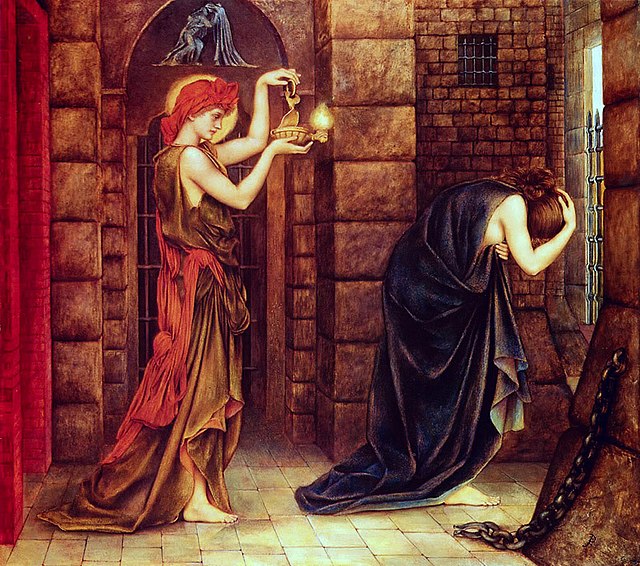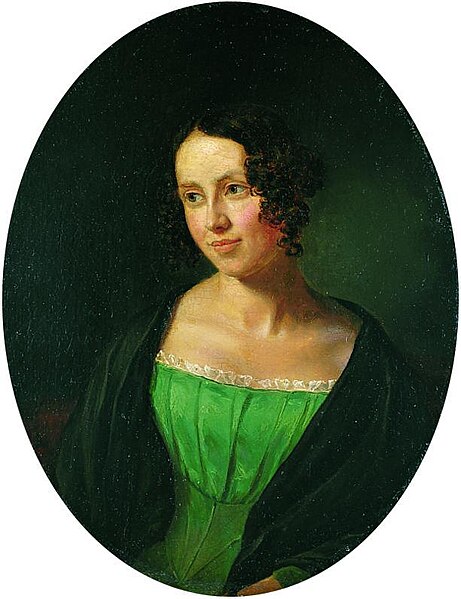Three Upbuilding Discourses (1843)
Three Upbuilding Discourses (1843) is a book by Danish philosopher Søren Kierkegaard. Kierkegaard continues his discussion of the difference between externalities and inwardness in the Discourses but moves from the inwardness of faith to that of love. According to Kierkegaard, everything is always changing in the external world, but in the inner spiritual world, there is one thing that never changes. He says, “What is it that never changes even though everything is changed? It is love, and that alone is love, that which never becomes something else.” Love is dependent on how a person sees and when the individual sees with love that individual can see away sin in himself as well as the sin of the whole world, just as Christ did.

Vor Frue Kirke, Copenhagen, Kierkegaard attended this church before it was burned down and rebuilt. "Father in heaven! Help us never to forget that you are love, so that this full conviction might be victorious in our hearts over the world's allurement, the mind's unrest, the anxieties over the future, the horrors of the past, the needs of the moment. O grant also that this conviction might form our minds so that our hearts become constant and true in love to them whom you bid us to love as ourselves."
Saint Paul in prison by Rembrandt
Hope in a Prison of Despair, allegorical, pre-raphaelite painting by Evelyn De Morgan (30 August 1855-2 May 1919), British painter, showing Hope as a woman or very young man holding a lamp, entering the dungeon where Despair is shown as another human figure bowed down with grief. Hope's saint-like halo suggests the comfort brought by religious faith. But a lot depends on you yourself, for there still is a battle no one else can fight for you, a doubt that no one else can put to rest, a care that no one else can put to rest, a care and concern about God. As soon as you have found assurance about this, you will find the world to be much better, for then you will not seek in the world or demand of it what it cannot give — then you yourself will be able to comfort and reassure others." ~ Søren Kierkegaard, Journals, IIIC, 1841
Søren Aabye Kierkegaard was a Danish theologian, philosopher, poet, social critic, and religious author who is widely considered to be the first existentialist philosopher. He wrote critical texts on organized religion, Christianity, morality, ethics, psychology, and the philosophy of religion, displaying a fondness for metaphor, irony, and parables. Much of his philosophical work deals with the issues of how one lives as a "single individual", giving priority to concrete human reality over abstract thinking and highlighting the importance of personal choice and commitment. He was against literary critics who defined idealist intellectuals and philosophers of his time, and thought that Swedenborg, Hegel, Fichte, Schelling, Schlegel, and Hans Christian Andersen were all "understood" far too quickly by "scholars."
Unfinished sketch of Kierkegaard by his cousin Niels Christian Kierkegaard, Royal Library, Copenhagen, c. 1840
When Michael (Mikael) Kierkegaard died on 9 August 1838 Søren had lost both his parents and all his brothers and sisters except for Peter who later became Bishop of Aalborg in the Danish State Lutheran Church.
From left to right: Wolff, Holberg, Hamann, Lessing, Plato and Socrates
Regine Olsen, a muse for Kierkegaard's writings







